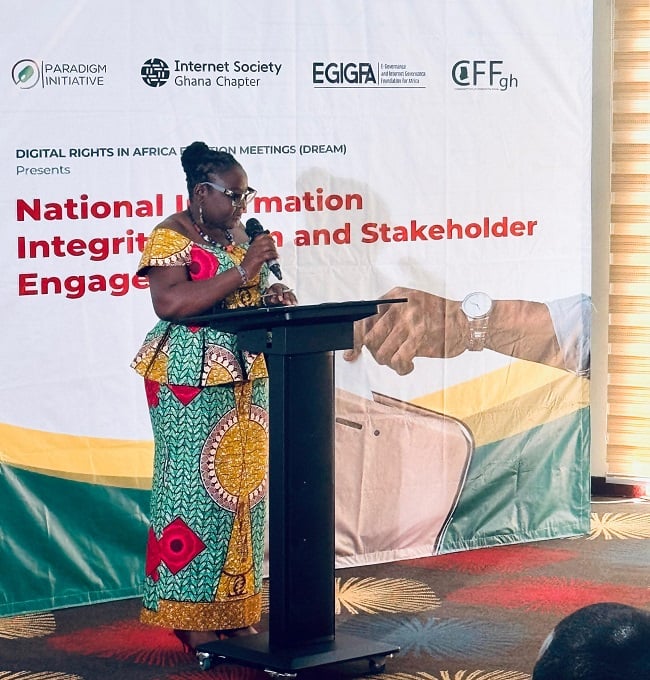In a crucial call to action, Dr. Winifred Nafisa Mahama, the Acting Director of the Information Services Department (ISD), underscored the urgent need for civil society organizations to combat the tide of fake news during this election year, which poses a significant threat to the stability and peace of the country. Speaking at a forum in Accra organized by Paradigm Initiative, along with partners such as Community Focus Foundation Ghana, E-Governance and Internet Governance Foundation for Africa, and Internet Society Ghana Chapter, Dr. Mahama highlighted the critical role of information integrity in maintaining democratic processes. The forum gathered a diverse array of stakeholders, including government representatives, politicians, social media platforms, fact-checkers, and civil society organizations, signifying the multifaceted approach required to tackle misinformation.
Citing historical precedents, Dr. Mahama pointed to the detrimental effects of false news on public perception and behavior, notably around the 2020 general elections. She recalled how misleading rumors, especially those concerning voter suppression, incited widespread anxiety among the populace. Additionally, the COVID-19 pandemic revealed the vulnerabilities in public health communications, where fake news led to confusion and heightened fear. These instances serve as stark reminders of the far-reaching impacts of disinformation, illustrating how it can disrupt social harmony and erode trust in critical institutions.
To address the pervasive issue of misinformation, Dr. Mahama outlined several initiatives that the Ghanaian government has implemented, including the Electronic Communications Act and the Cybersecurity Act, as well as the establishment of the GhanaToday website. These legislative measures are aimed at enhancing the legal framework governing digital communication and safeguarding citizens against malicious content. However, Dr. Mahama emphasized that legislation alone is insufficient; ongoing education and proactive measures are essential for meaningful change.
Central to Dr. Mahama’s recommendations is the enhancement of media literacy, particularly among youth and communities. Encouraging improvements in educational curricula to include media literacy would equip individuals with the skills needed to critically analyze the information they encounter. In tandem with this educational push, she advocates for the strengthening of independent fact-checking organizations such as Dubawa, which play a crucial role in validating information and counteracting false narratives before they gain traction.
Furthermore, Dr. Mahama called for the establishment of user-friendly reporting mechanisms that enable citizens to flag misinformation they encounter online. This grassroots engagement complements her suggestion for collaboration with technology platforms to create effective tools for combating the spread of fake news. By fostering partnerships between civil society organizations, government agencies, and tech companies, the accurate dissemination of information can be prioritized, ensuring that citizens receive reliable news and have the ability to report discrepancies.
In conclusion, Dr. Mahama’s address serves as a timely reminder of the collective responsibility shared by all stakeholders in society to combat misinformation, particularly in an election year. By advocating for informed public participation and promoting media literacy, she is initiating a vital conversation about the role of truth in democratic processes. It is essential, she argues, for the public to actively engage in verifying the information before sharing it and to participate in initiatives that promote critical thinking about media consumption. Only through these collaborative efforts can Ghana safeguard its democratic integrity and the peace of its society in the face of evolving challenges posed by misinformation.


